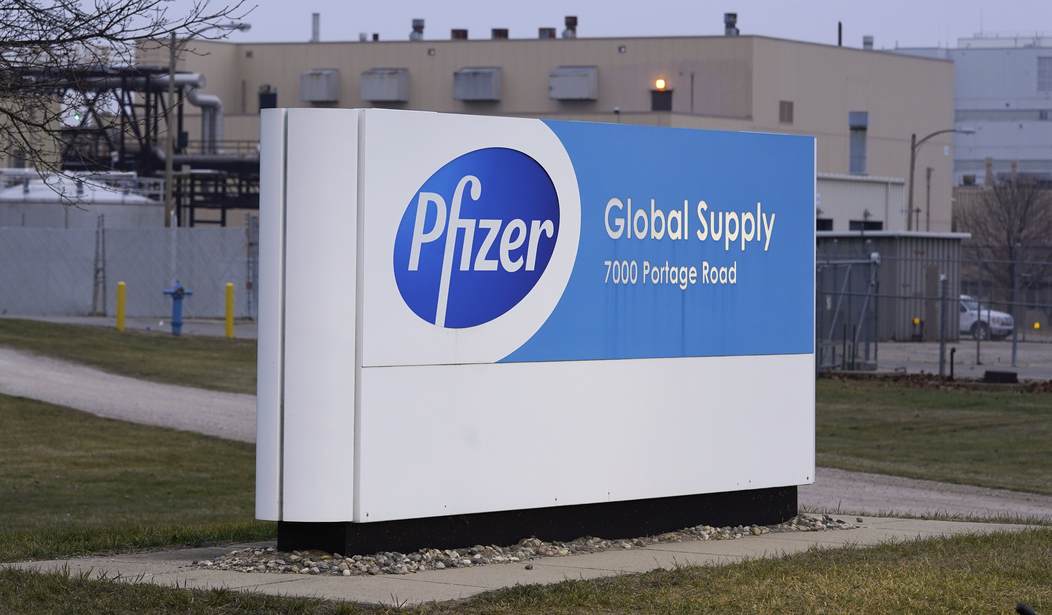When Pfizer first announced that they would be seeking emergency approval from the FDA for a third booster shot of their COVID vaccine, the response from both the FDA and the CDC was lukewarm at best. I think most of us were bracing for yet another set of conflicting answers from the various medical experts involved in these ongoing debates, and we weren’t disappointed. After initially agreeing with the CDC, Dr. Faucci turned around and went on the Sunday shows this weekend to say that we definitely might need booster shots “at some point” in the future… maybe. But Pfizer apparently isn’t taking no for an answer. Some of their doctors are meeting with government health officials today to plead their case. (Associated Press)
Pfizer says it plans to meet with top U.S. health officials Monday to discuss the drugmaker’s request for federal authorization of a third dose of its COVID-19 vaccine as President Joe Biden’s chief medical adviser acknowledged that “it is entirely conceivable, maybe likely” that booster shots will be needed.
The company said it was scheduled to have the meeting with the Food and Drug Administration and other officials Monday, days after Pfizer asserted that booster shots would be needed within 12 months.
Pfizer’s Dr. Mikael Dolsten told The Associated Press last week that early data from the company’s booster study suggests people’s antibody levels jump five- to 10-fold after a third dose, compared to their second dose months earlier — evidence it believes supports the need for a booster.
As I pointed out when this debate first broke out, it would be helpful if these geniuses could be a bit clearer about whether they are talking about COVID in general or the Delta variant specifically. Pfizer admits that it’s still going to be a while before they finish developing a new, “tweaked” vaccine specific to Delta, so it seems like they need to show their work and see how the current vaccine is doing against Delta based on studies of patients receiving one, two, and now three shots.
Dr. Dolsten (of Pfizer) is telling reporters that a third shot, six months after your second injection causes the patient’s antibodies to “jump five to 10-fold.” But the original testing showed that two shots of Pfizer given three weeks apart were 95% effective. How do you jump up 10-fold from 95%? Or does that mean that the original efficacy levels fade significantly after six months? Now, if we’re talking about Delta, Pfizer’s testing already said that two shots were not as effective against the variant as the original virus, but it was still supposedly pretty good. And the risk of death or an ICU stay was still very low.
We previously looked at the latest study out of the UK showing that only two fully vaccinated people under the age of fifty have died from Delta. And even including the unvaccinated, they’re only seeing a case fatality rate of 0.2% from Delta. That’s down in the same range of fatalities we see from the flu.
I’m wondering if maybe the best approach for the FDA at this time would be to accept Pfizer’s data about booster shots but ask them to continue testing and resubmit when they have a larger pool of test patients to draw from. They can approve the booster if they feel it’s safe without telling the public they need to run out and get one at six months. We’re only just now getting to the point where some of the first responders are hitting the six-month mark since they were vaccinated. Nobody outside of some of the first lab subjects will reach one year until after Christmas. But if they go off half-cocked again and start talking about boosters every six months starting this summer, it’s pretty much assured that they will scare even more people away from agreeing to be vaccinated.
I know we’re supposed to be “following the science” and all of that, but let’s be serious, here. We’re apparently following the politics and the PR spin every bit as much as the laboratory testing. And people are smelling a rat, or at least believing they do.








Join the conversation as a VIP Member